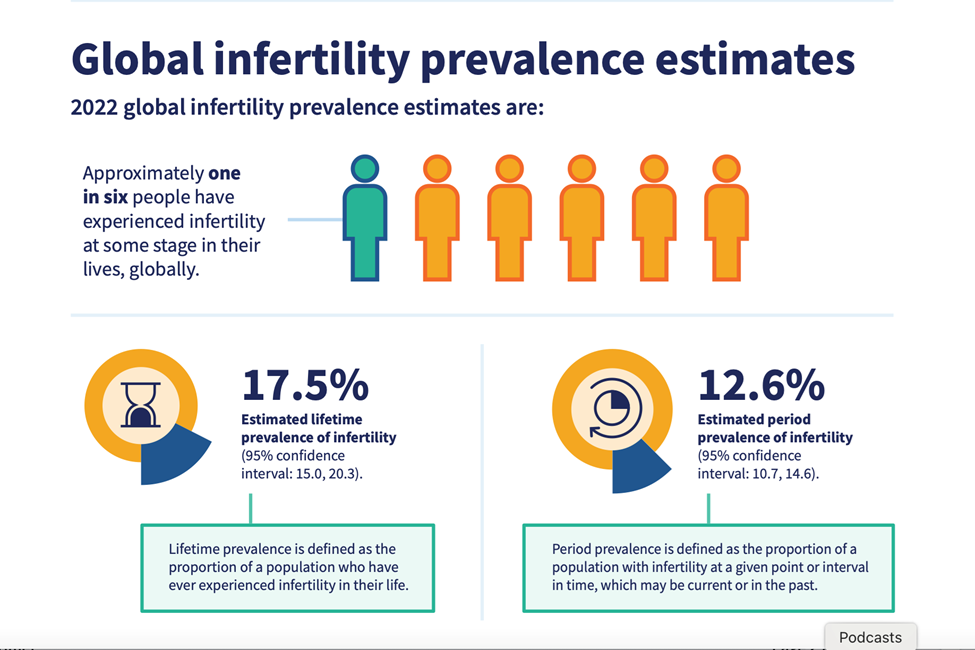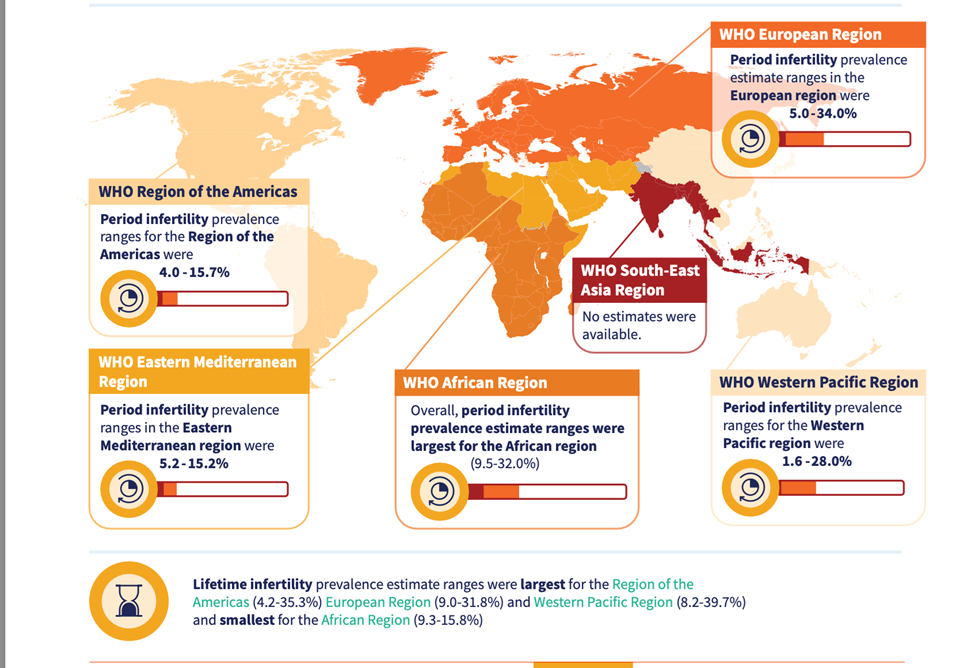Beyond the Numbers: 1 in 6 and the Reality of Infertility
The World Health Organization (WHO) estimates that a staggering 1 in 6 people globally experience infertility at some stage in their lives. This translates to approximately 48.5 million couples worldwide struggling to conceive. While these statistics paint a stark picture of the global prevalence of infertility, they only tell part of the story.
Beyond the Statistics: Understanding the Different Facets of Infertility
Infertility is a complex issue with various dimensions that go far beyond the simple inability to conceive. It encompasses:
- Types of infertility: Primary infertility refers to couples who have never been able to conceive, while secondary infertility affects couples who have previously conceived but are now facing difficulties. Unexplained infertility is a diagnosis given when no underlying cause can be identified.
- Causes of infertility: A range of factors can contribute to infertility, including age, lifestyle habits (smoking, excessive alcohol consumption), medical conditions (PCOS, endometriosis, fibroids), and male infertility factors (low sperm count, abnormal sperm morphology).
- Impact on mental health: The emotional toll of infertility is significant, often leading to anxiety, depression, and relationship strain.

Showcasing the Reality: Diverse Voices and Experiences
Infertility affects individuals and couples from all walks of life, regardless of their age, background, or family structure. Sharing diverse stories and experiences can help break down the stigma surrounding infertility and foster empathy and understanding.
Empowerment and Hope: Solutions and Support
While infertility can be a challenging journey, there is hope and support available. A range of solutions can help couples achieve their parenthood dreams, including:
- • Fertility treatments: Assisted reproductive technologies (ART) such as in vitro fertilization (IVF) and intrauterine insemination (IUI) can significantly increase the chances of conception.
- • Alternative therapies: Acupuncture, yoga, and mindfulness practices can help manage stress and improve overall well-being.
- • Support groups and counseling: Connecting with others who understand the challenges of infertility can provide invaluable emotional support and guidance.
- • Adoption and fostering: Building a family through adoption or fostering can be a fulfilling option for couples who are unable to conceive biologically.

Krishna IVF: Your Partner in Fertility
At Krishna IVF, we understand the emotional and physical challenges associated with infertility. We are committed to providing comprehensive fertility care, tailored to each individual’s unique needs and circumstances. Our team of experienced fertility specialists utilizes advanced technologies and compassionate care to help you achieve your dream of parenthood.
Ending with a Purpose: Breaking the Silence and Raising Awareness
Infertility is a common issue, but it’s often shrouded in silence and stigma. By sharing our stories, raising awareness, and advocating for better access to care, we can create a more supportive environment for those struggling with infertility.
Call to Action:
- • Join the conversation: Share your story, raise awareness, and help break the stigma around infertility.
- • Seek support: Connect with support groups, counseling services, or online communities.
- • Learn more: Visit the WHO website or other reliable sources for information about infertility.
- • Consider Krishna IVF: Contact us to schedule a consultation and explore your fertility options.
Ref: Infertility Prevalence Estimates, 1990–2021,3 April 2023 Global report. ISBN: 978 92 4 006831 5
